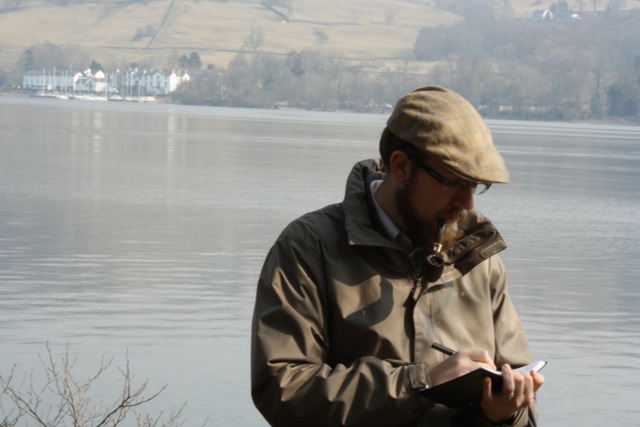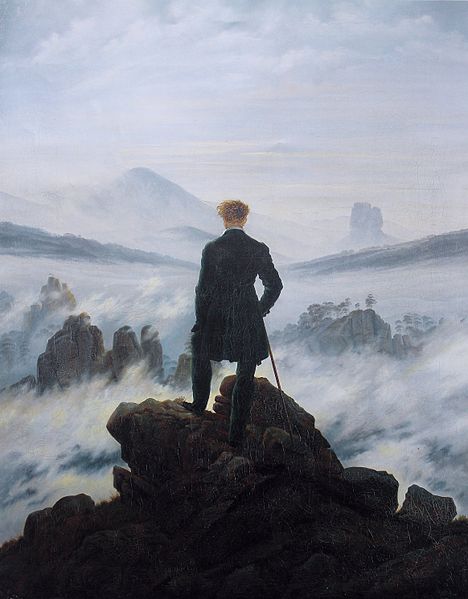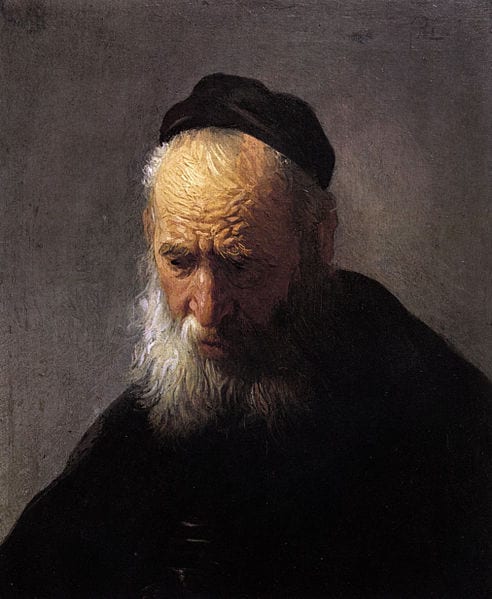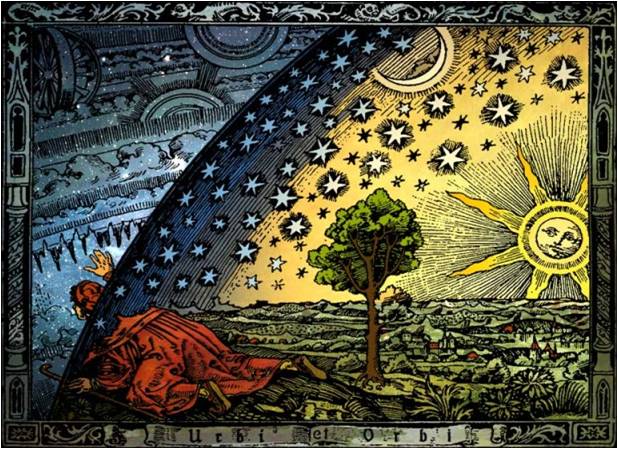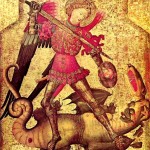David Russell Mosley
Ascension Day 2014
On the Edge of Elfland
Beeston, Nottinghamshire
Dear Friends and Family,
Michelle over at Soliloquies––an excellent blog that mixes philosophy, life, and writing––has invited to participate in a Writing Process Blog Hop. She has previously invited to a similar ‘event’, though in the previous case it was an award of sorts. I was remiss in not attending to the previous invitation and so willingly and gladly do I participate now. The Writing Process Blog hop invites bloggers to answer four questions about what, how, and why they write. The bloggers are then encouraged to recommend three other bloggers to do the same. With that in mind, here are the questions and my answers.
1. What are you currently working on?
Already this is, in many ways, a question which will perhaps receive an unusual answer. Like my Inviter, I work on both academic and fictive/poetic writings.
On the academic side, I am currently finishing my PhD thesis which is provisionally entitled, Being Deified: Poetry, Theo-Poetry, and Salvation History. In this work I argue that the Christian notion of deification (in Eastern Orthodoxy typically referred to as theosis) is integral to the Christian faith. I show this by arguing for its deep rootedness in Creation, the Fall, the Incarnation, Redemption, and the Age to Come. Alongside this, however, I argue for the importance of human creativity in our deification. I do this primarily through fantasy and poetry or the mythopoeic.
On the fiction front, I have recently finished a draft of what I would call a Faërie Romance which has the provisional title of On the Edge of Elfland. It is a story about a young man called Alfred who grew up believing in Elfland thanks to the stories told to him by a local storyteller called Oliver Alvin. Having returned from university, Alfred has all but forgotten the stories of his youth until one day, searching for mushrooms in the local forest (Fay’s Forest), he stumbles upon a gnome, guardian and shepherd of mushrooms. Alfred will then find out that he is a seer, one who dreams the present and that his fate, as well as the fate of his village and the fate of Elfland are all inextricably linked. He will face against goblins, trolls, dragons, and the goblin king who is, in truth, something far worse. The story is filled with Arthurian references, but is not, precisely, an Arthurian tale. I may post portions of it on here eventually, if there’s any interest.
I am also working on a short story for my twin sons recently born, wherein they find their way into Faërie and have several adventures.
In poetry, I have written several short poems, some of which I have posted here, as well as an attempt at a narrative poem written in alliterative verse about Arthur and his cousin Gawain defeating a lake monster in Lake Windermere.
2. How does your work differ from others in its genre?
In my academic writing, I am, I believe, doing something quite different. I draw from patristic, medieval, and contemporary theologians in order to found my theology. Then, however, I turn to fantasy and poetry in order to further relate the truths of theology. It is my firm opinion that being creative is an essential aspect of being human and of our being deified. Therefore, it is essential that we take into account the great works of human creativity. My own proclivity is for the mythopoeic and so my emphasis lies there.
In my fiction, I am perhaps unusual in that I write, primarily, for an audience of one, myself. My work is not precisely Young Adult, nor is it precisely Fantasy as we often conceive of it. It is, or tries to be, Faërie Romance. If I have an audience beyond myself in mind when I write, it is an audience of the dead. I try to write something I pray my mentors would want to read, if inferior to their own works. In my poetry, I differ only in that I am, at best, a mediocre poet who prefers structure to free verse.
3. Why do you do what you do?
I write (whether it be scholarship, fiction, or poetry) because I could do nothing else. I do not write to gain money or fame (writing, especially academic, is the wrong vocation for those ends). Instead I write because I must. I am not happy if I am not writing. This does not make me successful (whatever that means); nor does it necessitate that I am good at what I do. It only means that I must do it in order to fulfill my vocation.
4. How does your writing process work?
My writing process is different for each kind of writing I do. For blogs and often for poetry, my process is occasional. An idea will strike me because of a place I visited, a sight I have seen, or an article I have read. I then tend to ruminate on it for a few days before I sit down and begin to write it out. When I’m writing poetry, usually a line will present itself to me and I will begin to work around that line forming a structure, a meter, rhyme-scheme, or alliterative pattern.
My academic writing tends to come from the books I have read and my personal reflections on the world around me. For instance, my current work could be said to have two beginnings. The first is in my mother having read The Hobbit to me since I was a little child. This instilled in me a love fantasy and poetry. On the theological side, it began when I took my first class in the history of the Early Church. There I was introduced to the likes of Gregory Nazianzen, John Cassian, Augustine, and others that has led me down the path of deification.
When I set out to write something academic, I tend to write an outline first. My outlines are usually detailed at the beginning and fuzzy at the end. Then I read, take notes, write them into the outline, alter the outline as my research guides me. Then I make another copy of the outline, without the notes, and begin writing. I copy and paste quotations and references in where necessary and write around them. When finished, I usually read what I’ve written aloud, or have my computer do so, and make edits. When the occasion is available, I read my work to others for comments as well.
For fiction, I have only ever worked consistently on one story that underwent such a heavy transition from when I first began it nearly ten years ago, that I re-wrote the entire thing from scratch, occasionally re-incorporating stories I had in the original draft. I am currently waiting until I finish my PhD thesis before I return to this story for the editing phase.
I hope you have found my answers to these questions interesting, possibly even enlightening at least as regards my person. I now nominate three bloggers to do the same:
1. A Pilgrim in Narnia by Brenton Dickieson. Brenton writes primarily about C. S. Lewis, but his blog is truly a revelling in nearly all things Inklings and Fantastical. Brenton, however, does also do fiction writing, so I would personally be interested in his answers to these questions.
2. Mysteries and Manners by Maura. Maura is a Catholic English teacher, which already endears her and her blog to me. Being an English teacher (something I briefly considered myself), I would be interested on her approach to these questions about anything and everything she writes.
3. Having Decided to Stay by Bryana Johnson. Bryana’s blog, like Maura’s, is still new to me. However, after reading her excellent story about ‘The Stag Who Lived Forever’ over at Story Warren, I am intrigued by her as an authoress and curious to know more about her writing processes as well.
Let me know what you think about my writing processes and make sure to check out the blogs I’ve linked to. Ta ta for now.
Sincerely yours,
David Russell Mosley

